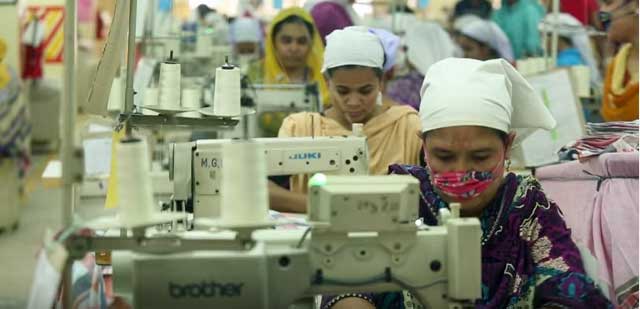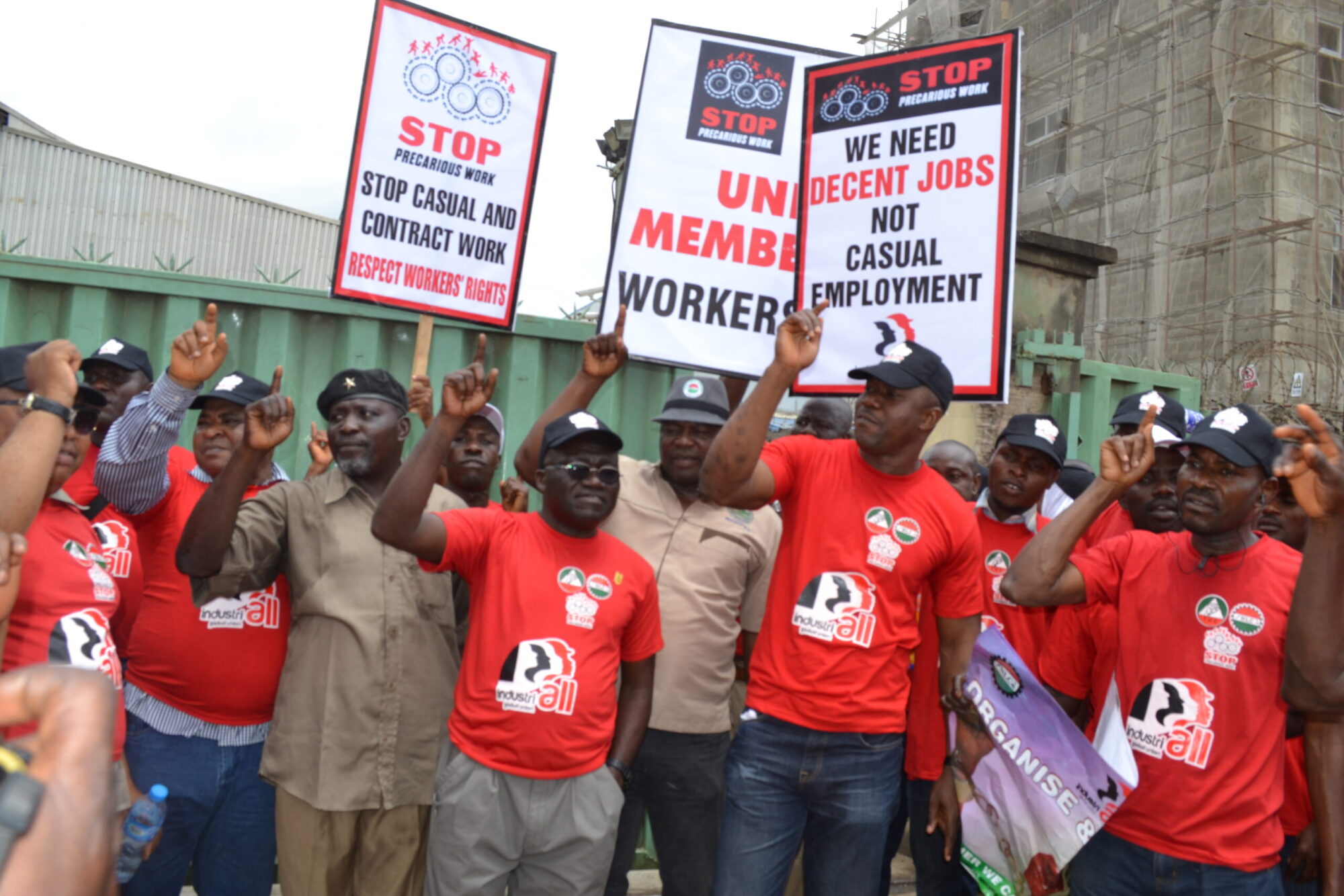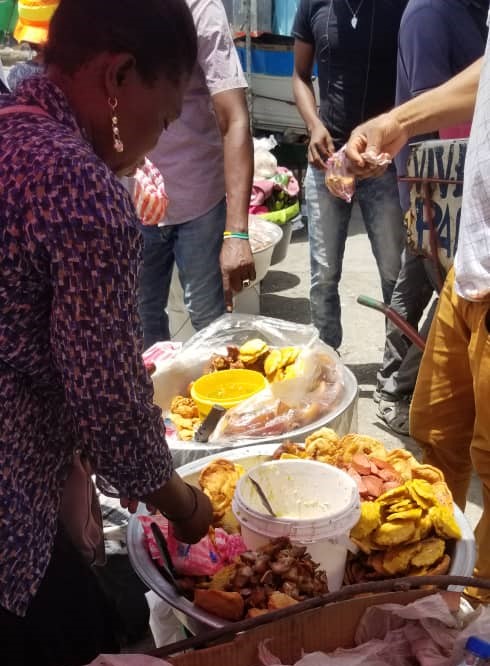With the unexpected shift in Bangladesh political leadership, garment workers say they are hopeful but cautious about the effect on their wages, working conditions and fundamental civil rights, such as the freedom to form unions. “We hope something positive will...
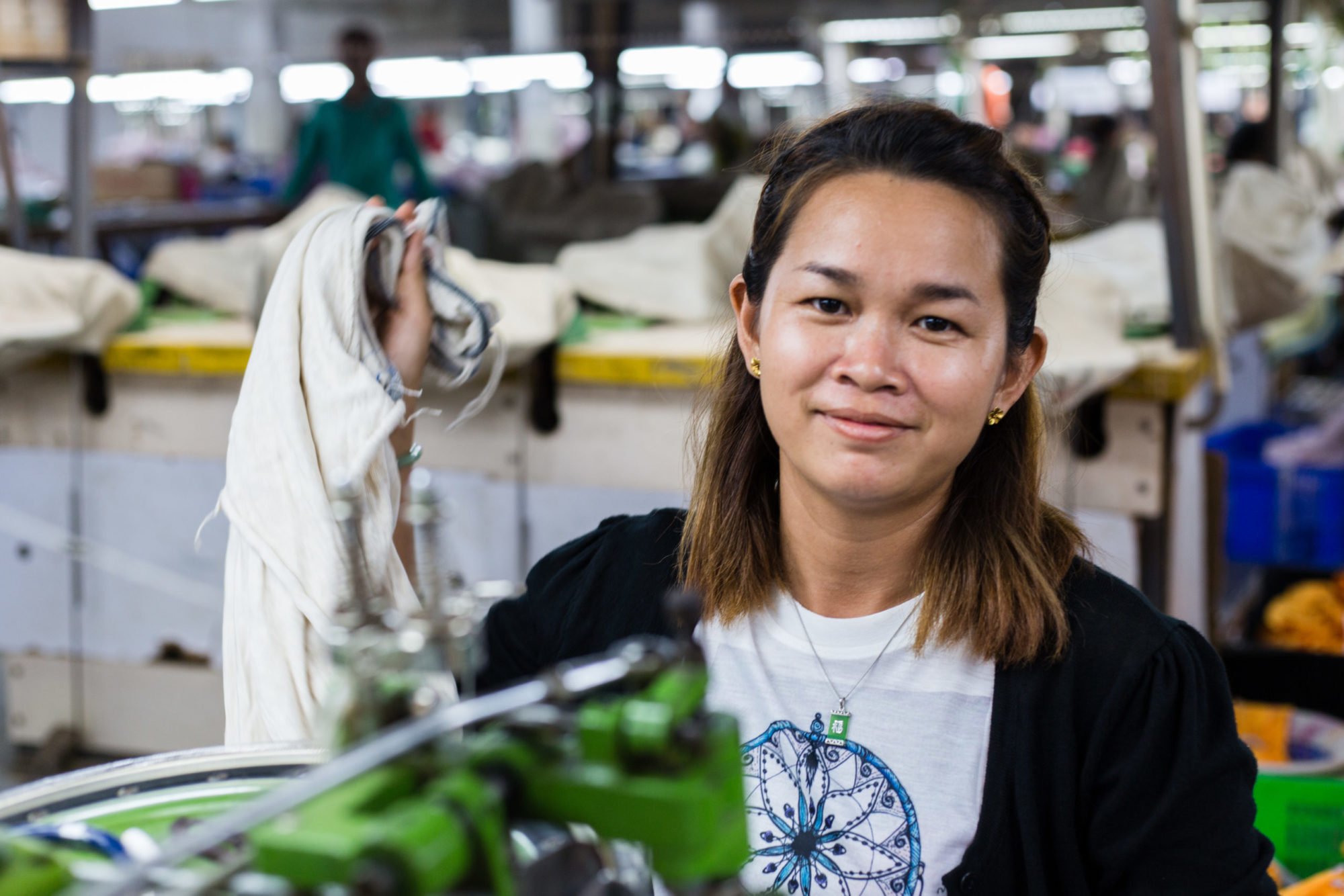
Heng Rithy, a garment worker in Cambodia, says her factory has good working conditions and she can support her family because workers have a union. Credit: Solidarity Center/Shanleystudio
An estimated 450 million people work in global supply chains—in textiles, retail, fisheries, electronics, construction, tourism, transport and agriculture. Economic globalization has created benefits for consumers, business and suppliers, but the practice of sourcing goods and services from countries where wages are low and laws are lax often results in jobs that are insecure and informal, involving dangerous workplaces, forced overtime and even slavery.
The Solidarity Center works with unions, worker associations and other allies in countries throughout the global supply chain in countries such as Bangladesh, Honduras, Lesotho, Morocco and Uzbekistan to address poverty wages, dangerous and unsafe working conditions and limited rights on the job.
For instance in Lesotho, the Solidarity Center partnered with labor rights and women’s rights organizations to negotiate a worker-centered, precedent-setting program to comprehensively address the rampant gender-based violence and harassment denying thousands of women garment workers a safe and dignified workplace. The Solidarity Center is helping lead training in addressing and preventing sexual harassment and other forms of gender-based violence among 10,000 workers at five factories there.
Migrant workers comprise a large part of the global supply chain, traveling to countries such as Malaysia to work in factories and to Gulf countries as domestic workers. The Solidarity Center partners with unions such as the Central Organization of Trade Unions-Kenya and the Kuwait Trade Union Federation to advocate for policies and legislation that address the exploitation and abuse migrant workers face, and educate workers who plan to work abroad about labor laws and workplace rights in their origin and destination countries.
WEST AFRICA UNIONS FIGHT FOR WORKER RIGHTS IN FREE TRADE AGREEMENT
The African Continental Free Trade Area (AfCFTA) was sold with the promise to “promote and attain sustainable and inclusive socioeconomic development, gender equality and structural transformation.” However, many governments’ failure to engage civil society...
Haiti Garment Workers Need Four Times Their Wages to Get By
Haiti garment workers should be paid four times their current salaries just to keep pace with the cost of living, a new Solidarity Center study finds. The High Cost of Low Wages in Haiti: A Living Wage Estimate for Garment Workers in Port-au-Prince, determined that...

Heat Stress in the Cambodian Workplace
In Cambodia, workers health and safety and climate change are linked. This report details the results of surveys, interviews, and thermal monitoring conducted in the garment, delivery, and informal food sector that display the negative effect that heat has on workers,...
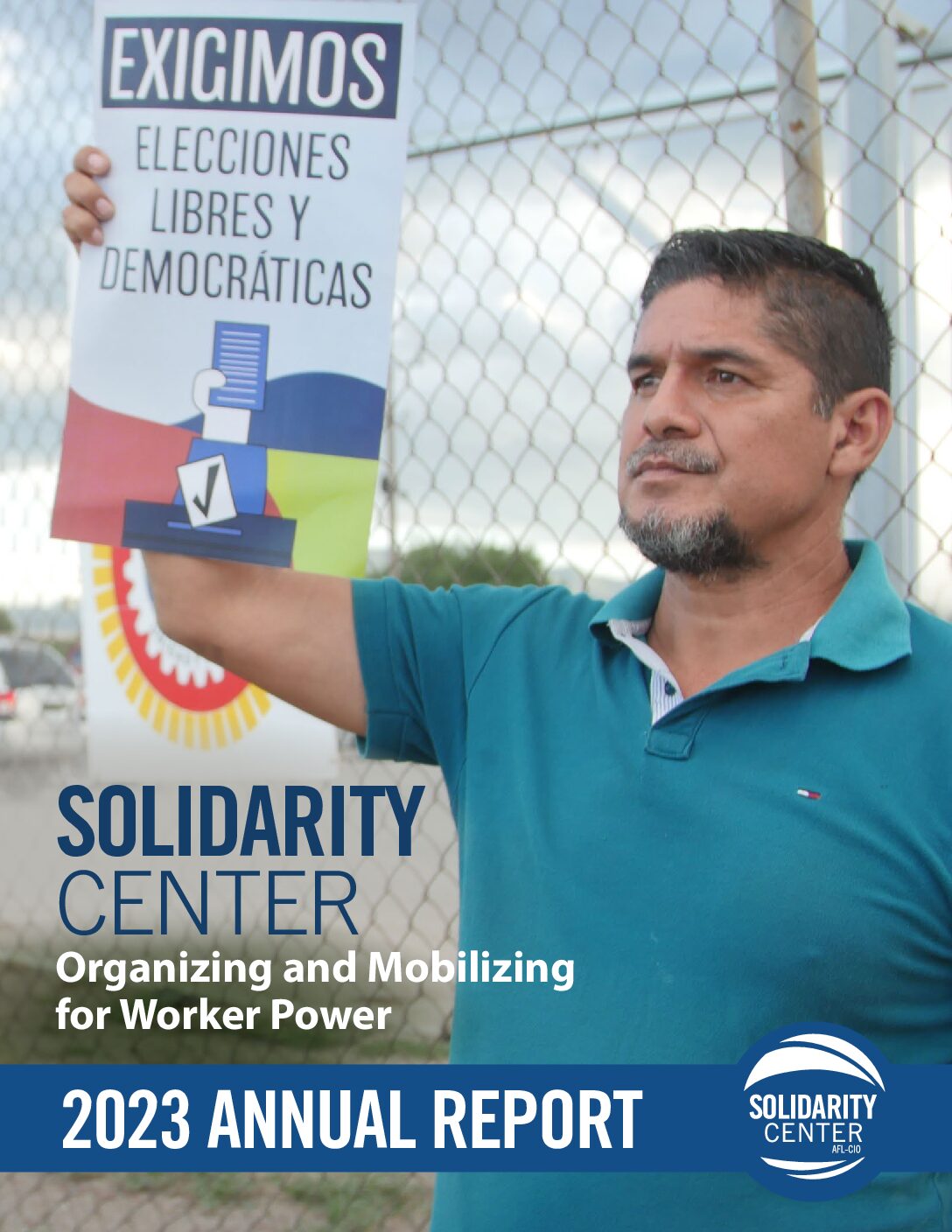
2023 Annual Report
In 2023, the Solidarity Center supported workers as they took on exploitative multinational companies and robot algorithms, demanded their governments tackle social ills and deliver on promises, and fought for justice in environments increasingly dangerous to those...
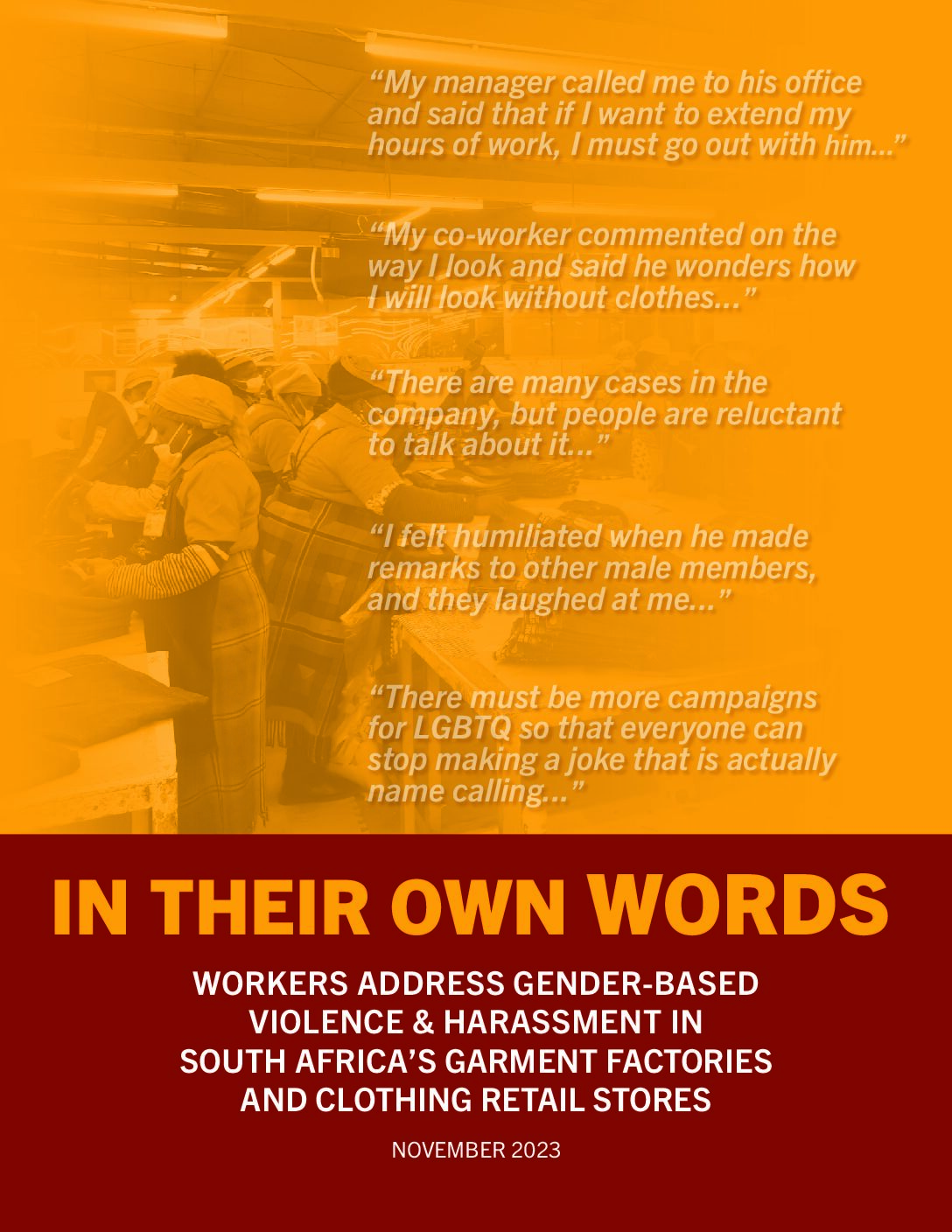
In Their Own Words: Workers Address Gender-Based Violence & Harassment in South Africa’s Garment Factories and Clothing Retail Stores
In South Africa, 98 percent of women garment and retail workers surveyed in 2022 said they had experienced one or more forms of gender-based violence or harassment, including physical abuse, unwanted sexual advances, psychological abuse, bullying and rape. To better...
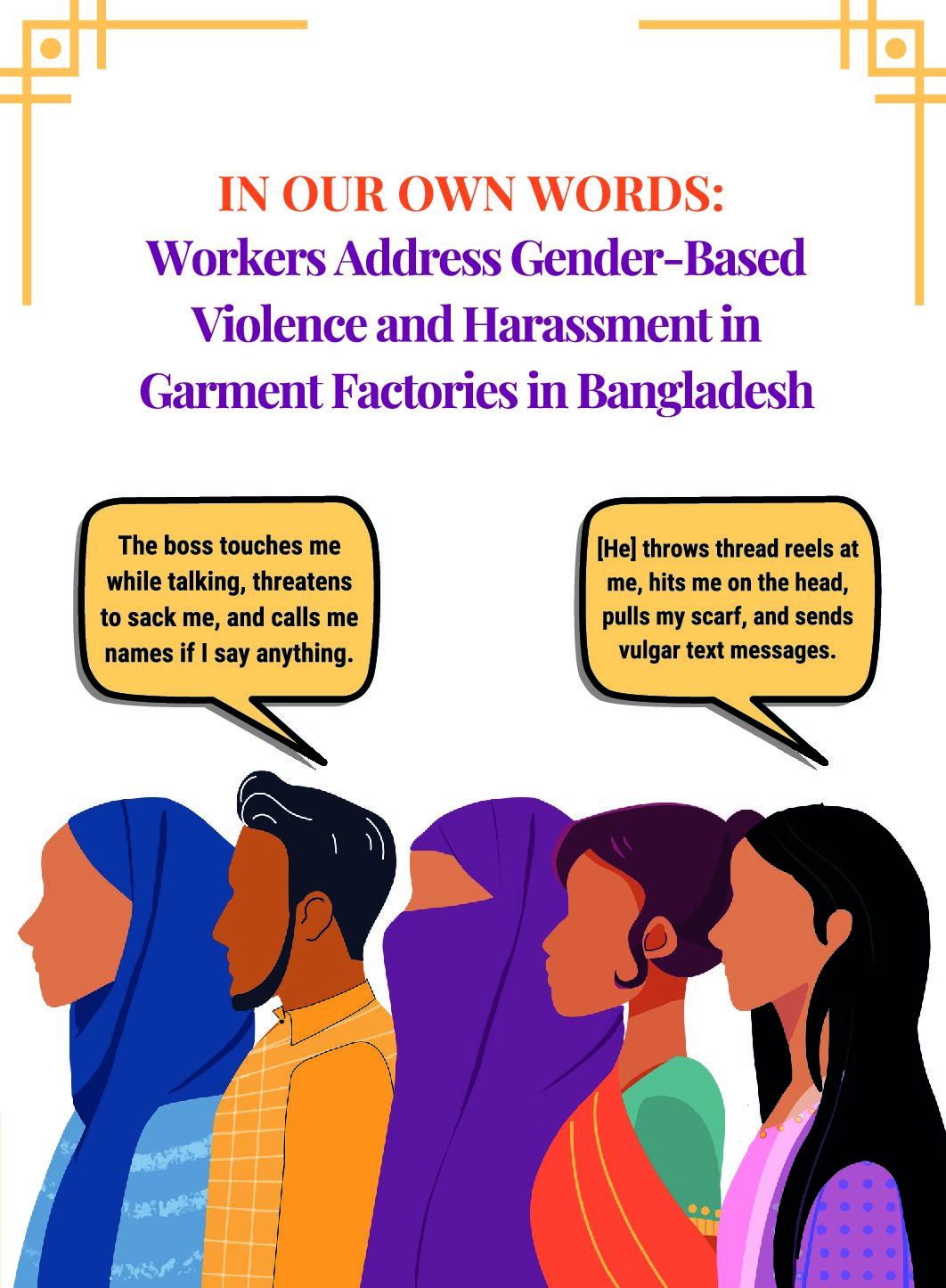
In Our Own Words: Workers Address Gender-Based Violence and Harassment in Garment Factories in Bangladesh
In Bangladesh, 80 percent of women garment workers surveyed in 2019 reported they had experienced or witnessed sexual harassment, molestation or assault, endured extreme verbal abuse or witnessed a factory manager or supervisor abuse and harass other women in the...
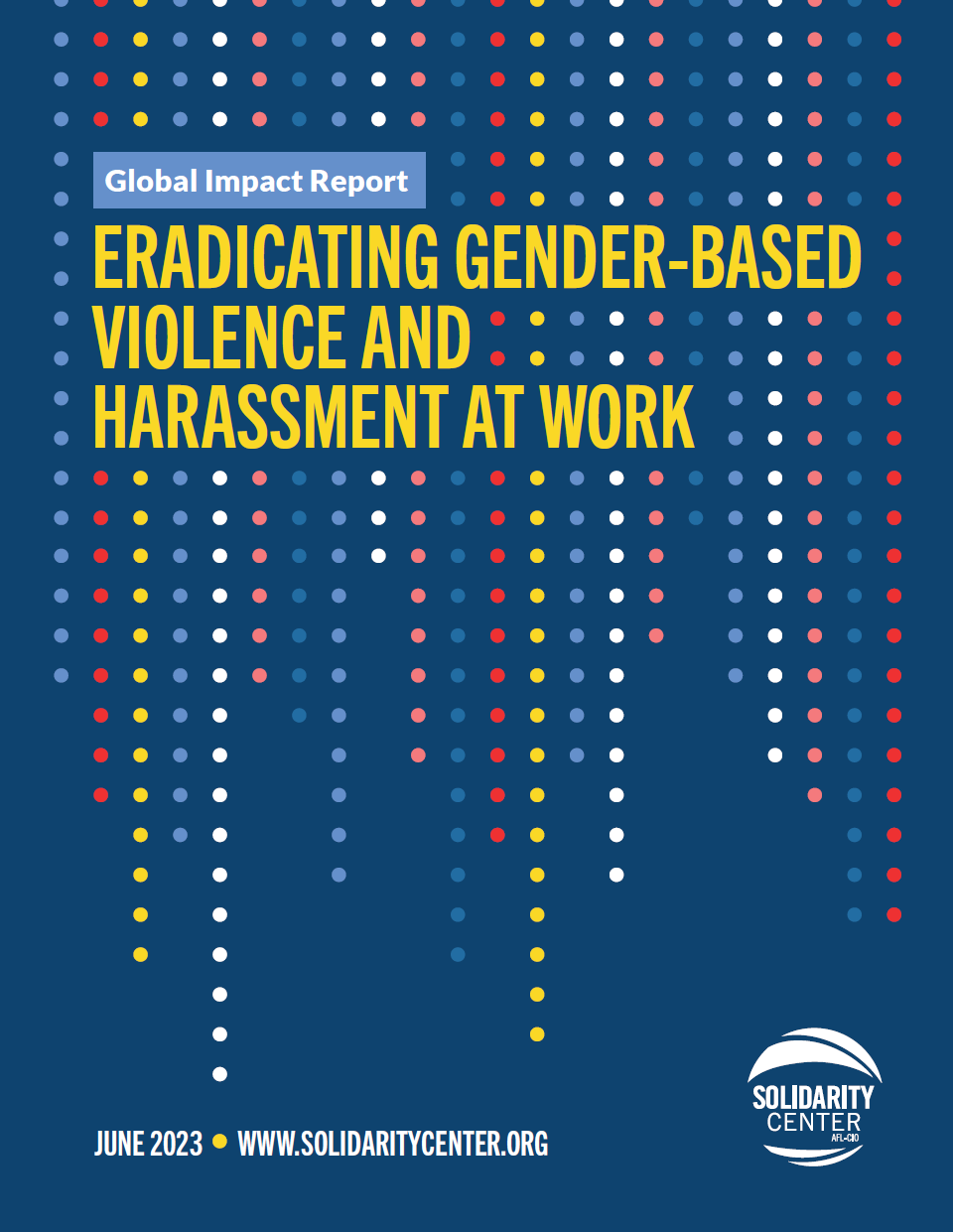
Global Impact report: Eradicating Gender-Based Violence and Harassment at Work
The Solidarity Center Global Impact report highlights the Solidarity Center's support of unions and civil society organizations in ending gender-based violence (GBVH) at work and showcases key outcomes, including a landmark agreement to address GBVH in Lesotho garment...
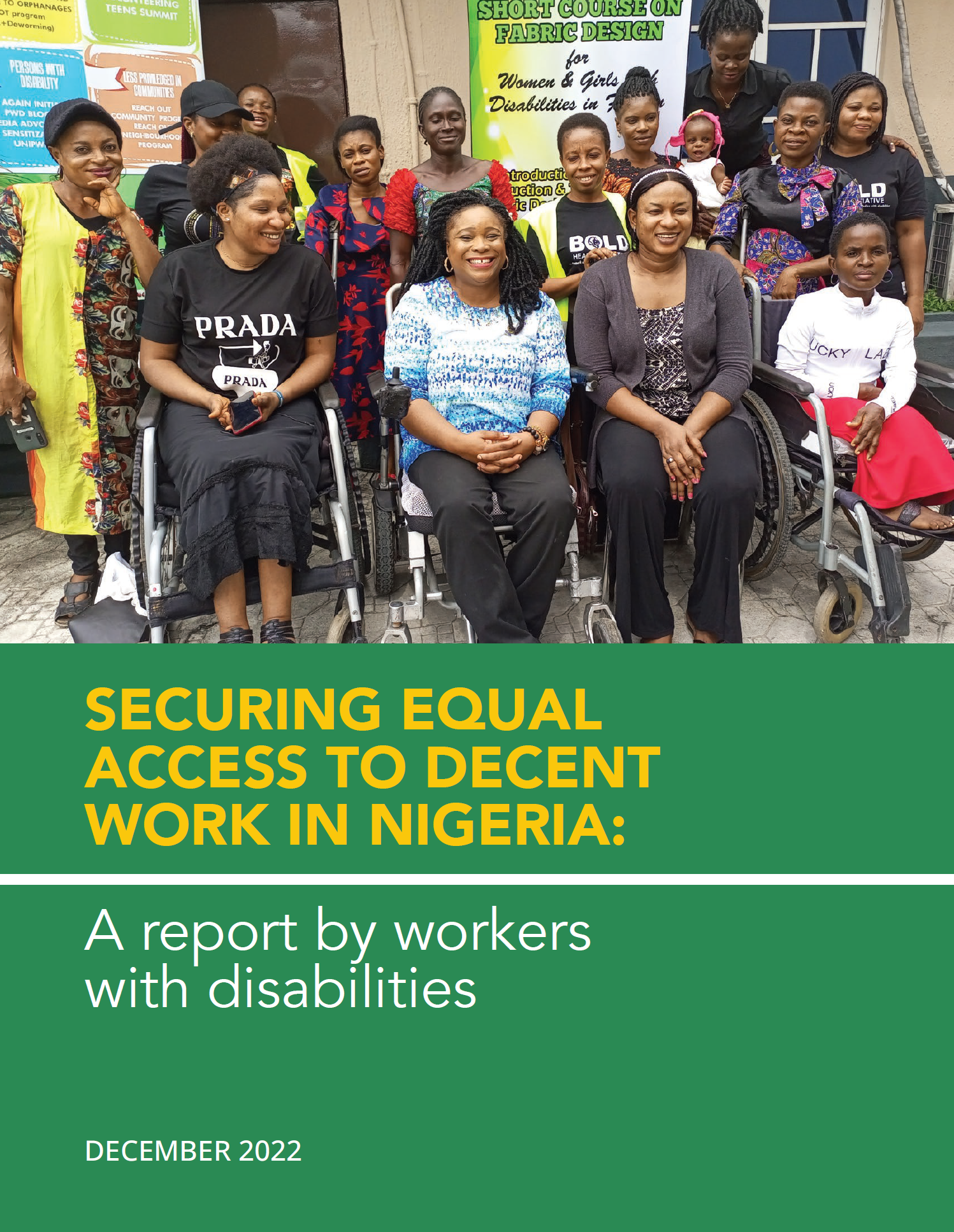
Securing Equal Access to Decent Work in Nigeria: A Report by Workers with Disabilities
A survey of more than 600 workers with disabilities in Nigeria conducted by the Trade Union Congress of Nigeria (TUC) Women Commission and the Solidarity Center in collaboration with Nigerian unions and disability rights organizations, finds that most workers...

